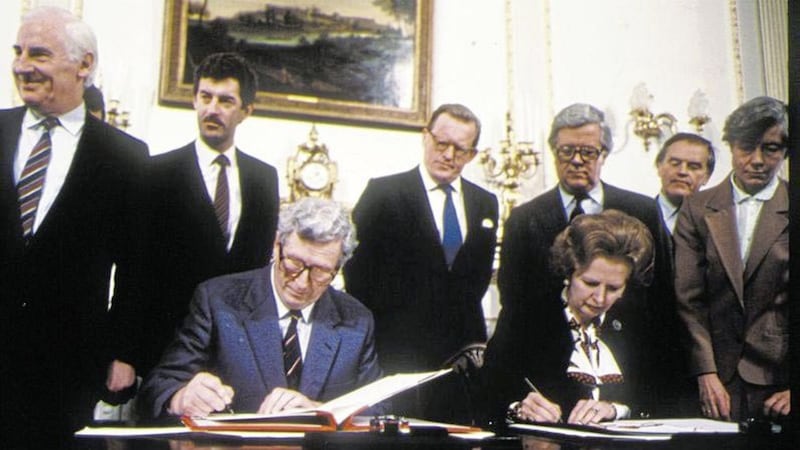What do we want? What do we need?
We have a few choices. Choices that will allow for time and space to give our head peace so that we can give our attention to ordinary, normal politics. Normal politics like, will we have enough money to feed the wains or enough doctors to replace a banjaxed knee?
The time-line for the choice we make, not for the first time in our unfortunate and colourful history, will be somewhat dictated by the speed that the Conservative Party takes to sort itself out. Could be a year. Could be more.
One choice is that the local parties, particularly the DUP, are either forced or facilitated back into devolved government. The reverse of that same coin is that other parties then have a choice of going back or staying out. Devolved government is no bad thing, but it has been weakened and its stability undermined so much that when we hit another constitutional bump the scaffolding will come tumbling down once again.
The present devolved arrangement was never built to withstand something like Brexit and a deranged British Conservative party. It is becoming a bad joke to hear politicians and commentators expound on devolution and the Good Friday Agreement as though it were the agreed and final solution to our conflict and divisions. It has served us well in its important but limited purpose and it was never intended that it would have the foundational strength and clarity to get us beyond tectonic shifts like Brexit, the protocol and demographic changes.
The second choice is joint authority. It is a first cousin to the Anglo-Irish Agreement; the realisation that there are two tribes, two histories living in a small space, and, as yet, unable to merge those histories. Some say it is too cumbersome and radical and without modular evidence. But it was the threat of joint authority that brought about devolved government. It eradicates all the parsing of what is and when is consent required to allow us to do normal politics. The Anglo-Irish Agreement is presently in a sickly state of health brought about by the extreme nationalism of a section of the Conservative Party. It was that agreement that facilitated the ending of the worst of the 40 years of violence, and it was under its canopy that any lasting accommodation has been achieved. As it is now in tatters, Irish nationalism needs a politic that affords it clarity and safety while also allowing unionism the same clarity and safety. Joint authority delivers that equality to all, until we find an ultimate agreement.
Another choice calls for greater foresight and courage from the Alliance Party. The last few years have shown that tinkering with the implementation of the devolved structures falls far short of addressing the core issues. If the changes of designation and representation that Alliance rightfully seeks were implemented tomorrow, it would not address any of the fundamental tensions that presently exist and are likely to grow within this society. Alliance should face the reality that the present settlement has run its course and new futuristic agreements have to be discussed and found. Growing the middle ground is a contribution to the future but not to the requirements of the present.
We need a standing forum which allows the future to be discussed and allows normal politics about wains and doctors to be addressed in a different place and free from the burden of constitutional change. Alliance can make that happen. All non-unionist parties will sign up, the Irish government will hesitantly co-operate, the British will waffle but recognise they have to respond to something that involves the majority of MLAs. Unionist parties will initially refuse to have anything to do with such a forum but will soften over time and, like their predecessors, will evolve to a new reality.
Those are the choices. Take your pick.









